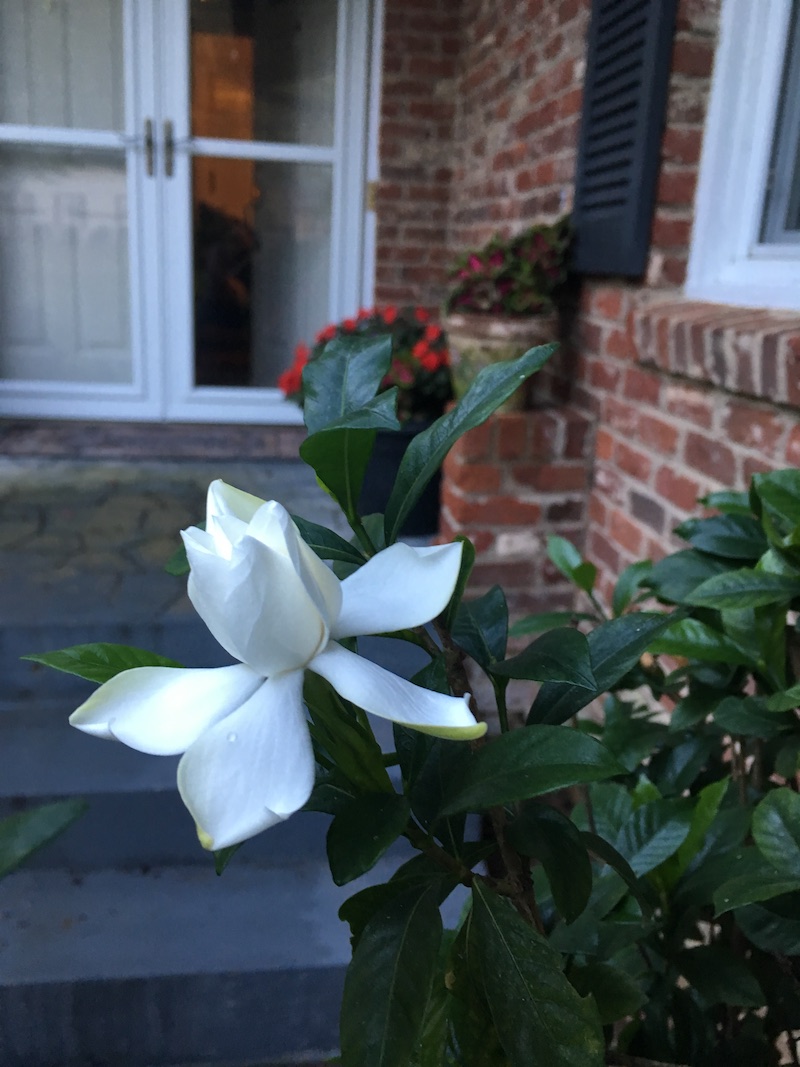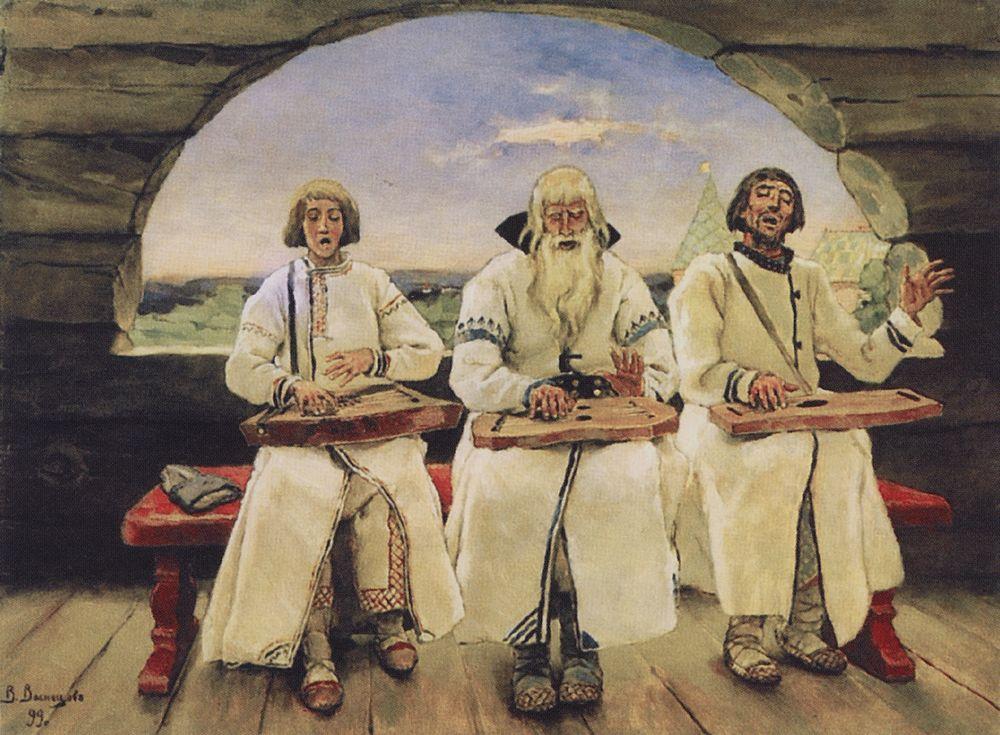 Gardenias are still blooming outside our front door.
Gardenias are still blooming outside our front door.
I never had gardenias growing in my yard before, so I don’t know whether these bushes are especially ardent bloomers, or whether gardenias ordinarily bloom until the first frost. Perhaps I should find out?
Actually, I’d rather not know. I want to be surprised by each new blossom. The gardenias themselves were a surprise to me. When selecting this house, I didn’t even register the gardenias. Or the peonies, azaleas, dogwood, and camellias. I was too busy sizing up the rooms and searching out the door to the sun porch. The whole purchase was done post haste.
In fact, I chose this house without my husband seeing it. Me? Pick a house? I’m barely able to choose a cauliflower without agonizing over the decision. That’s a leap I never could make.
Except I did make it. Hank, over in Germany aided by online participation, endorsed it. We bought it, and it’s done. And, we have gardenias!
Probably I shouldn’t read too much into these ongoing blossoms, but it does seem to me that they are blooming with particular ardor. If I add a bit of poetic stretch, they illustrate something that’s been on my mind lately: desire, specifically the desire to learn.
In my work, I travel with a lot of people, many of them quite senior. It’s not easy for some of them to pack up and fly across the ocean. But their desire to travel is intense. Either they desire to see things for the first time (the bucket list), or they yearn to revisit sites they last saw 40, 50, or 60 years ago. Their desire to travel overcomes the inevitable aches and physical limitations they face while dealing with airports, buses, and castle steps.
At the other end of the spectrum lies the innate desire that motivates the young to learn. A baby trying to crawl expends enormous effort, and must feel awful frustration wielding those chubby arms and legs. But his desire to move across a room wins out.
Toddlers entering into one of the stage of language acquisition expend enormous effort too. We adults might label what comes of their mouths as cute or funny. But it’s not funny to the child trying to master the nebulous process of speaking. Perhaps we should remember how unfunny it is when we struggle to use a second or third language.
But the desire to communicate conquers all for the child. An even more fascinating stage follows: the desire to decipher letters and read. Among our grandchildren, a lot of desire to read and write is in evidence right now. I nearly fell off the pew two Sundays ago when a pre-schooler grandchild began copying words from the bulletin onto a piece of paper. What delight came from copying the words, produced in a twisty “font” worthy of Horton Hears a Who!
Neuroscientists increasingly can tell us how it all happens. In recent years researchers seem to be mastering every aspect of brain development. They have chemical explanations for virtually all of the critical stages of human learning. But I have yet to see them explain desire.
The desire to crawl. The desire to read. The desire to place a vase of flowers on a table and gaze with satisfaction at their beauty. Explaining desire belongs to the realm of poets, not scientists.
A good deal of our teaching involves fostering desire. And fostering desire requires a special fuel: enthusiasm. Some days it’s easy to model enthusiasm to help kindle a little one’s desire to learn. Other days we’d rather stay with our heads under the covers and barely care if our pupils do too.
Especially today, with torrents of rain blanketing our new home in Winston-Salem. Yet again I’m about to depart on two back-to-back river tours. I’m torn between desires to continue unpacking more moving boxes, to sit and write, and to prepare the household (and myself) for the upcoming trips.
I am the world’s worst packer. Surveying the pile that needs to become my suitcase fills me with dread. I counter that dread by envisioning the faces of the people I’ll be touring with over the next weeks. For many of them, these trips will be the fulfillment of a life-long goal. They bring enormous life-experience to the table. And I mean literally to the table. At the “Smithsonian Tables” that I routinely host during dinner, the caliber of conversation is spectacular. Sometimes, of course, we trade pleasantries and chat. But other times, it’s like taking a class! I fold my hands and listen, knowing I’m lucky to be at these tables.
Case in point: I routinely make a statement in my lectures that I’d be grateful to anyone in the audience who wishes to share titles of books, films that amplify the subjects. Back in June, one of my guests came up after the lecture and said, “Are you serious about that?” “Absolutely,” I assured him. Two days later he slipped me an envelope in which was a lengthy, annotated list of classic films I not only had never seen, but had never heard of. It wasn’t a list. It was a film course! Slowly I’ll get to his list, but what a treasure even to have it.
Some cultures, at some times, have routinely honored the wisdom of age. I think of Russian culture, where the ancient village society was led by a bard in the form of a wise, blind man who narrates history and wisdom to the accompaniment of a gusli—a dulcimer-like instrument carried by a strap or placed on the lap.

We do not have the equivalent of the gusli player in our modern world. Nor would we have time for him, if we did have him.
In our modern society, we diminish the wisdom of our older citizens. We have decided, corporately, that the understanding and accomplishments of our older citizens are superfluous to youth’s far more pressing path. Younger generations are literally too busy with their complex schedules to meet the basic needs of their older relatives and neighbors, much less bask in their wisdom. Many of us find ourselves in exactly that situation and it is difficult.
Plus, in our age of “youth worship,” we mistakenly think that minds encased in frail bodies no longer contain an ardent desire to learn and vital capacity for enthusiasm. Yes, in some cases illness does diminish these. But otherwise I see nothing that corroborates that assertion. I see quite the opposite.
Life is a journey, not a destination, the pop saying goes. Such a sentence may be trite, but in this case, I think it’s useful. The desire to learn varies little from our first breath to our last. It is given us as a divine gift. The enthusiasm we need is a divine gift too. It transcends all physical age and circumstances. We just need to remember this. And draw upon its power.




Professor Carol and Hank,
I really love all your posts, but usually read them in my e-mail so really haven’t commented before (although I did send you an e-mail response to one post quite some time ago, since I didn’t think to read it in the browser). This one especially spoke to me this evening, because I’m a grandmother watching my grands grow, and because I’m still an avid learner at almost 64. ;-) We home educated our six children for over 30 years and that’s when I truly began to learn.
Anyway, I’d love to see you do a post with that list of classic films! I’m an old/classic film buff myself, and I’m always looking for good films (most of the stuff put out today isn’t worth watching in my humble opinion, though there are exceptions).
In the meantime, I hope that Florence and Michael haven’t impacted you too badly (we’re in Fredericksburg, VA so have only had a lot of rain), you have wonderful river tours, and that your packing gets done with minimal distress (I can totally relate, as I get paralyzed when I’m packing for more than a couple of days)! :-)
In His grace, Kay (in VA)
P.S. The reCAPTCHA box wasn’t working last night, but it seems okay this morning, so am posting this again.
Same with me. I tried to leave a comment a few days ago and the Captcha messed it up. Hope they get this together.
My first thought was to ask if she could share some of those reading list recommendations. Her review of Amor Towles’ book made me discover his novels. What a thrill.
Second was to recommend two books by the legendary John Senior called The Death of Christian Culture and The Restoration of Christian Culture. Must reads for the culture wars and he was years ahead of his time.
Also I wanted to ask Carol and Hank why they moved to North Carolina recently.